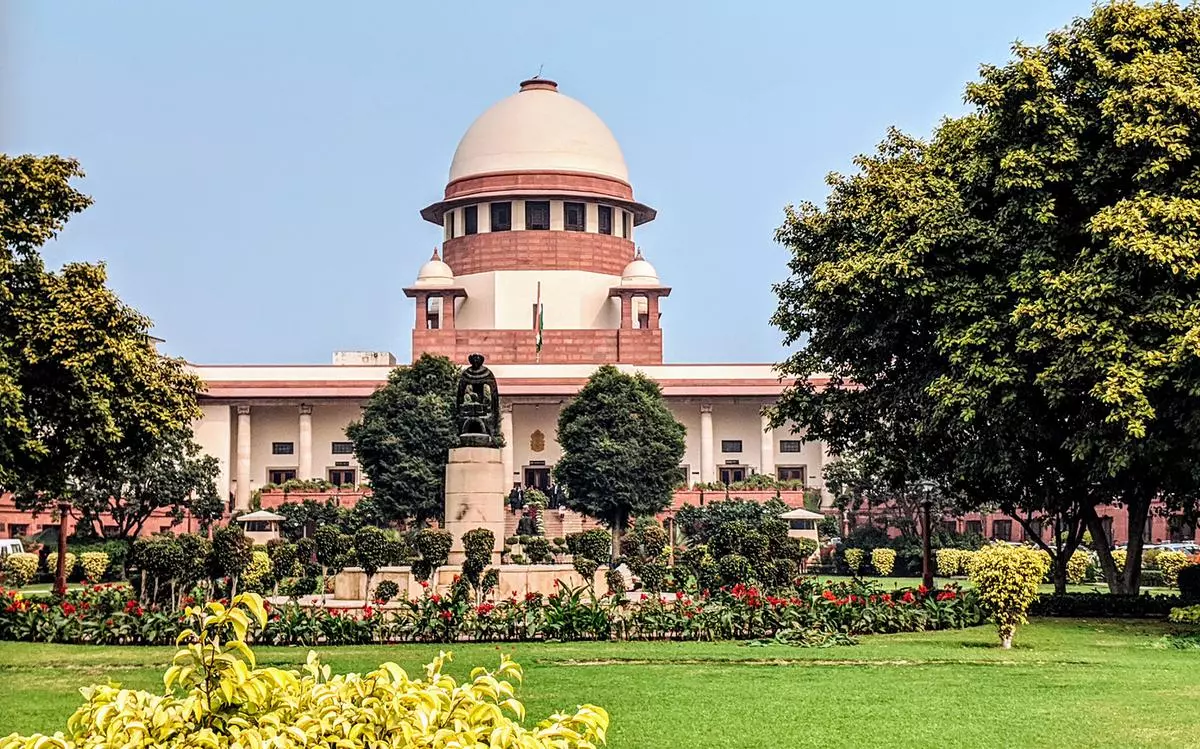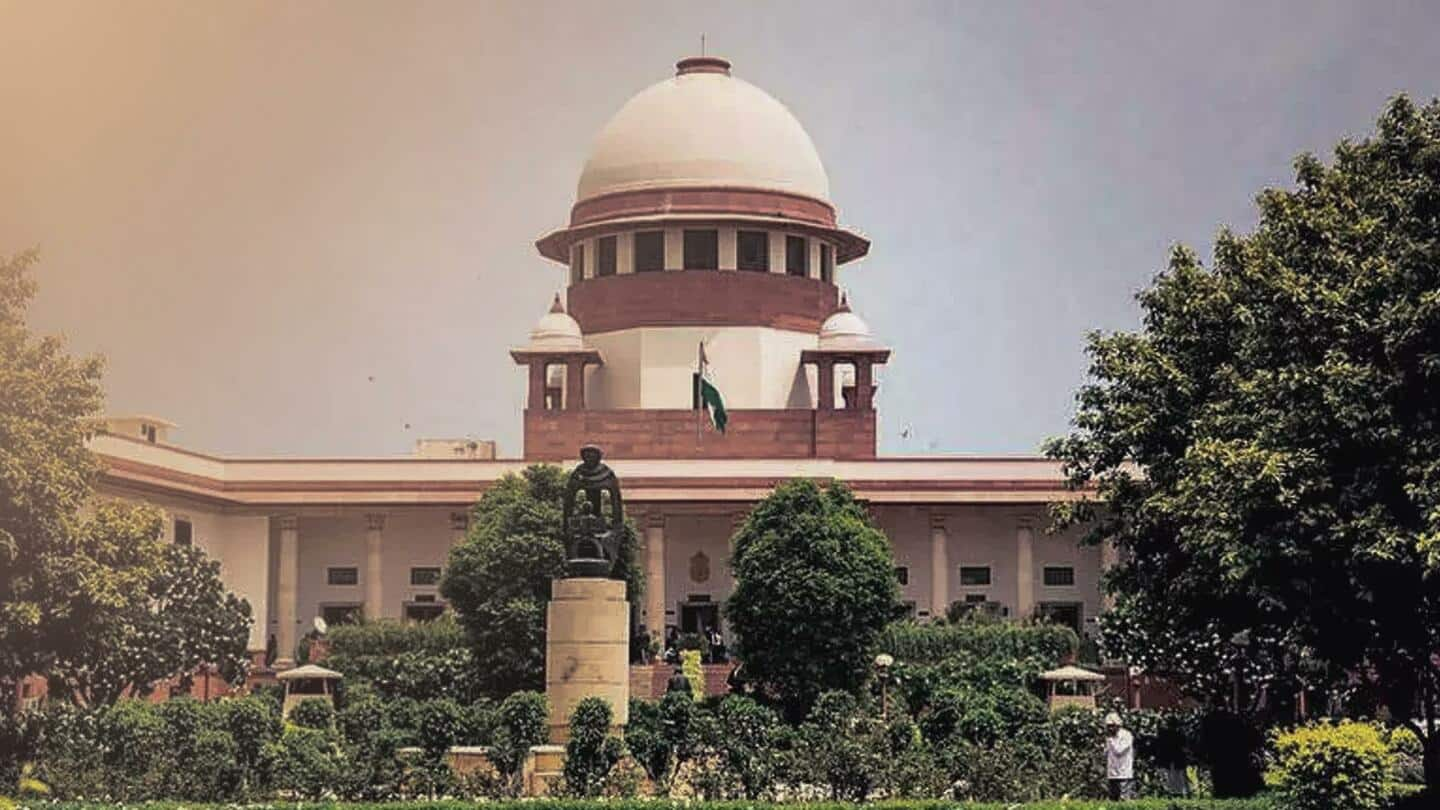The Supreme Court orders the Center and the RBI to provide the documentation for the decision to implement demonetization.

The Supreme Court orders the Center and the RBI to provide the documentation for the decision to implement demonetization. The Supreme Court said that in hearing petitions challenging the 2016 banknote demonetization decision, it would not remain silent and behave as a bystander just because the issue was one of economic policy. In response to a group of 58 petitions contesting the central Government’s choice to demonetize one of the five judges on a Constitution Bench, Justice B.V. Nagarathna, indicated that high-value currency notes of Rs. 500 and Rs. 1,000 were introduced in November 2016.
Justice Nagarathna stated, “Just due to the fact it’s miles an monetary choice, does now no longer imply we will fold our palms and sit. A.S. Bopanna, V. Ramasubramanian, B.R. Gavai, and S. Abdul Nazeer, judges Six years after the November 8 circular shocked the nation, Nagarathna is still discussing a number of topics, including whether the circular that launched the programme was constitutional.
In response to Senior Attorney Jaideep Gupta’s efforts to define the constraints within which the Supreme Court was permitted to exert its judicial review authority, particularly in the area of economic planning, Justice Nagarathna remarked. The attorney for the Reserve Bank informed the Constitution Bench, echoing the Attorney-General for India, R. Venkataramani, that the proportionality criterion should only be used to determine if there was a rational connection between the declared goals and the demonetization monetary policy.
The core of his argument was that neither the cabinet’s acceptance of the recommendation to revoke the legal tender status of the two high-value banknote denominations nor the recommendation itself were subject to judicial scrutiny. He claimed that the Wednesbury criteria and the proportionality principle had little to no application to the formulation of economic policy.
Notably, the senior counsel stressed that even while the ordinary people had been given ample and reasonable opportunity to swap their notes, it was ultimately their “responsibility” to “order their affairs” in such a way that would allow such possibilities to be taken advantage of. To prevent anyone from losing their hard-earned money, this was done. According to Gupta, “It cannot be alleged that there was anything wrong with the way the policy was handled, or the cut-off date was decided because a reasonable chance was offered. There was no way to meet the needs of every single person in this situation.
Senior Advocate Shyam Divan, who was arguing on behalf of a petitioner who left Rs. 1.62 lakhs in cash behind when he left the country in April 2016 but was unable to exchange it when he eventually returned in February 2017, made the Gupta was addressed with the following remark in response: “If there was a person who had money in a locker in India, they should have returned to India. He very certainly had the time to do it.
The bench frequently mentioned during the hearing how this contentious policy choice had caused social and economic hardships and distress for the average person. For example, Justice Nagarathna soberly observed that Everyone used demonetized currencies to pay home helpers and workers, and in the end, it was these individuals who had to wait in lengthy bank lines.
The senior lawyer accepted this condition and said, “If I may say so, temporary pains are also an important part of the nation-building process.
It’s possible that some of the difficulties weren’t foreseen. However, a system was put in place to deal with issues as they arose.
The senior counsel vehemently asserted that although the Specified Bank Notes (Cessation of Liabilities) Act, 2017 had allowed relief to be given to specific groups of people after verification by the Banking System, “individual cases of hardship” that were not protected by the act could not Gupta notified the Bench, “The Reserve Bank cannot go beyond the legislation. The senior counsel also argued that the notice had been “statutorily affirmed” while discussing the 2017 legislation. We are no longer in a scenario where the Parliament hasn’t had a chance to evaluate decisions made by notification, he continued.
Since the Reserve Bank is the “acknowledged expert on monetary policy,” the central government’s authority to decide on economic policy should not be constrained. In order to execute the authority conferred under sub-section (2) of Section 26 of the Reserve Bank of India Act, 1934, Gupta cautioned the top court against seeking to develop judicial norms. He argued that the court had shown unequivocally that none of the three elements of government—the legislative, the executive branch, and the central bank—can foresee every scenario.
Attacking the petitioners’ argument that the power granted by the section would be unguided, unanalyzed, and arbitrary unless ‘any’ was interpreted as some,’ Gupta urged the apex court to grant the provision the widest possible amplitude to assist in realising its genuine legislative purpose. He said that this warranted the removal of all two denominations’ series.
He declared in his conclusion that the court was not authorised to issue “futile” or “academic” writs. Additionally, the court will not issue a writ if the case has become infructuous, and declaratory relief will not be granted in such circumstances if it necessitates factual assessment, he said.
“Declaring legislation illegal is a declaratory relief that may be issued at any moment, but a judicial review based on facts amounts to adjudication on facts. It should not be adjudicated at this point once the judgement is not to be reopened,” the senior attorney said in his argument to the court.
The Attorney General cautioned that the court was being asked to create an alternate norm and push the exchange window or the grace period under the guise of easing financial burdens in his brief arguments, which were also heard by the Bench. The senior law officer remarked, “The court should not participate in this since it amounts to a fundamental modification of the character of the law. Additionally, he urged the court to consider the case from a “broader perspective. Where will we be if every legislative action based on wisdom or lack thereof is scrutinized? He questioned.
Well-known lawyer and former finance minister, then gave his closing remarks before the Constitution Bench. Chidambaram gave a response. The senior counsel restated his major points and stepped up his lobbying for the central bank and government to release sensitive records. In addition, he urged the court not to be “intimidated” by concepts like “economic policy” and “monetary policy” and to not back down from closely analysing both the decision-making procedure and the result itself, should it be shown to be obviously arbitrary.

Even though demonetization was implemented six years ago, he continued, “this court can comment on the decision-making process and the decision, the range of sub-section (2) of Section 26, the distinction between demonetization by pressing this section into service and monetisation through parliamentary session legislation, the ideal decision-making process, and the fairness of the process used by the government.




